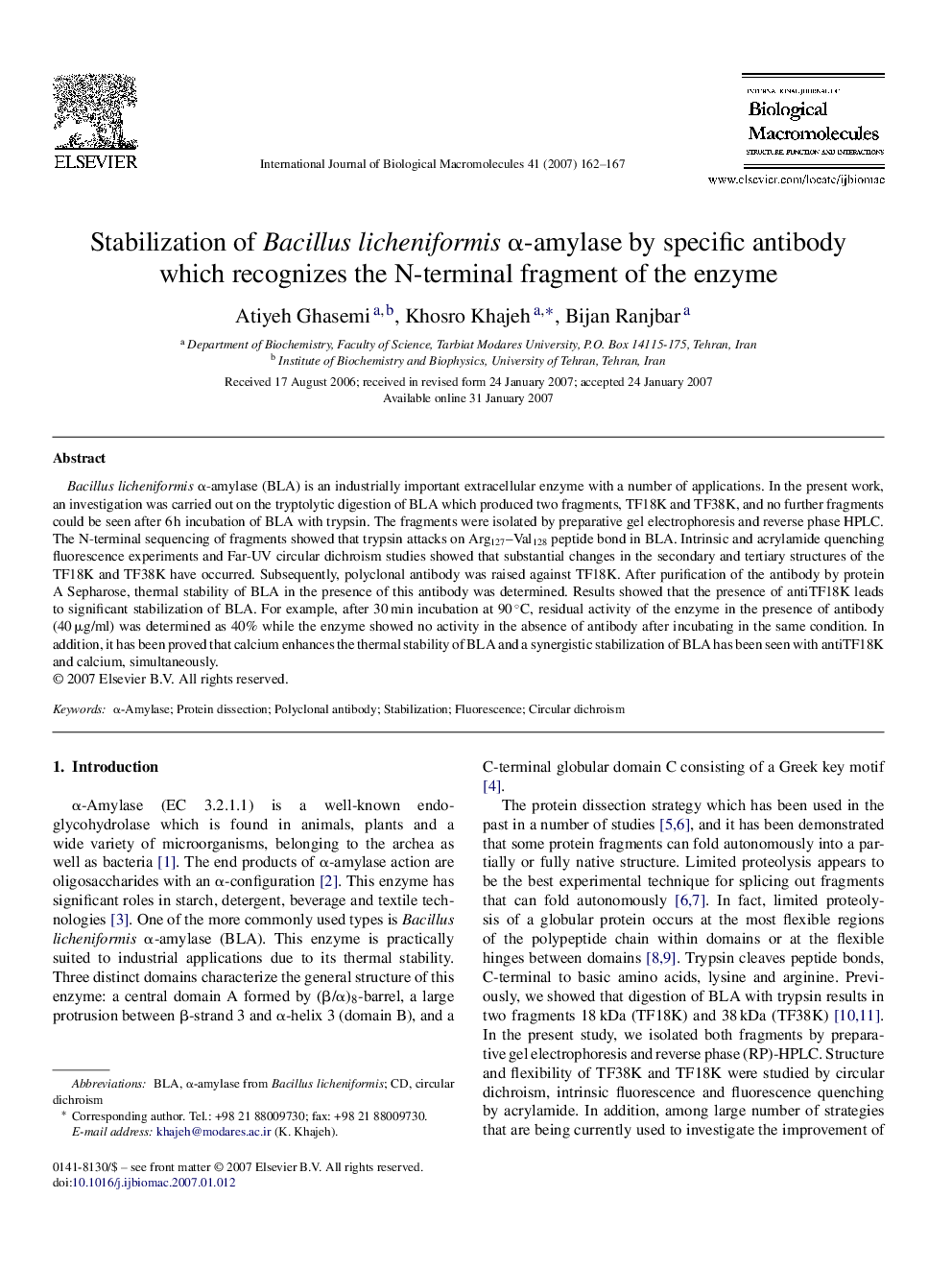| Article ID | Journal | Published Year | Pages | File Type |
|---|---|---|---|---|
| 1987999 | International Journal of Biological Macromolecules | 2007 | 6 Pages |
Abstract
Bacillus licheniformis α-amylase (BLA) is an industrially important extracellular enzyme with a number of applications. In the present work, an investigation was carried out on the tryptolytic digestion of BLA which produced two fragments, TF18K and TF38K, and no further fragments could be seen after 6 h incubation of BLA with trypsin. The fragments were isolated by preparative gel electrophoresis and reverse phase HPLC. The N-terminal sequencing of fragments showed that trypsin attacks on Arg127-Val128 peptide bond in BLA. Intrinsic and acrylamide quenching fluorescence experiments and Far-UV circular dichroism studies showed that substantial changes in the secondary and tertiary structures of the TF18K and TF38K have occurred. Subsequently, polyclonal antibody was raised against TF18K. After purification of the antibody by protein A Sepharose, thermal stability of BLA in the presence of this antibody was determined. Results showed that the presence of antiTF18K leads to significant stabilization of BLA. For example, after 30 min incubation at 90 °C, residual activity of the enzyme in the presence of antibody (40 μg/ml) was determined as 40% while the enzyme showed no activity in the absence of antibody after incubating in the same condition. In addition, it has been proved that calcium enhances the thermal stability of BLA and a synergistic stabilization of BLA has been seen with antiTF18K and calcium, simultaneously.
Keywords
Related Topics
Life Sciences
Biochemistry, Genetics and Molecular Biology
Biochemistry
Authors
Atiyeh Ghasemi, Khosro Khajeh, Bijan Ranjbar,
